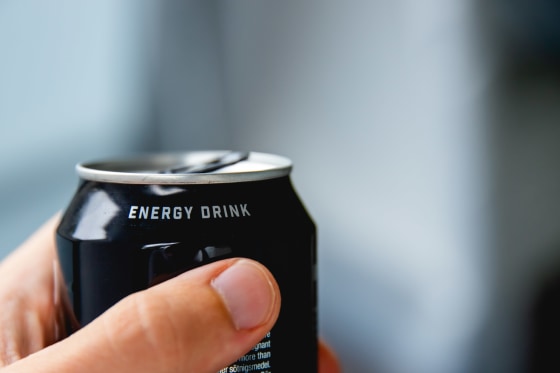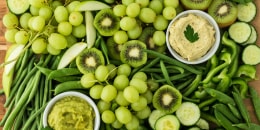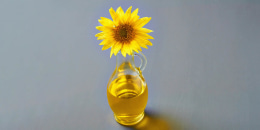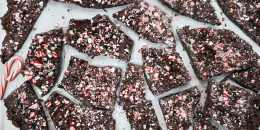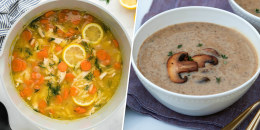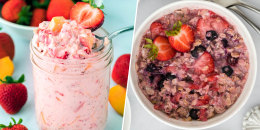Sipping on an energy drink might seem like the perfect pick-me-up, but with concerns over their health impacts, experts are urging caution.
From rising diabetes rates in the U.S. to emergency room visits due to energy drink consumption, the risks are real. And it's especially dangerous to mix energy drinks with alcohol because it can mask the effects of alcohol and lead to excessive consumption, Dr. Frank Hu, a professor of nutrition and epidemiology at Harvard Medicine School of Public Health, tells TODAY.com.
Are there any healthy energy drinks out there? If you want to buy an energy drink, are there ways to minimize health risks? TODAY.com spoke with dietitians and a doctor to break it down.
Are energy drinks bad for you?
Many energy drinks have high caffeine and sugar content, which can pose potential health risks.
"High caffeine intake can disrupt sleep, contribute to insomnia and exacerbate mental health issues," Hu explains.
While the U.S. Food and Drug Administration says up to 400 milligrams of caffeine a day is safe for most adults, a single energy drink can easily contain 100 milligrams or even higher amount of caffeine, Hu says. A 1.93-ounce energy shot, for example can contain 230 milligrams of caffeine, a 8.4-ounce energy drink can have 80 milligrams and a 20-ounce can can have up to 190 milligrams of caffeine.
Sensitivities to caffeine varies from person to person, the FDA adds.
Katherine Zeratsky, a registered dietitian nutritionist at Mayo Clinic, adds that while caffeine in moderation can be safe, the combination of caffeine with other stimulants found in some energy drinks may lead to health risks.
"The theory (is) that the combination of the caffeine with maybe the other ingredients is too high of a stimulant effect that affects heart rate or heart function or blood pressure," Zeratsky says. "That sends people to the emergency room with a cardiac event."
Beyond caffeine, both Hu and Julia Zumpano, a registered dietitian with the Center for Human Nutrition at the Cleveland Clinic, highlight another significant issue: the hefty sugar load in many energy drinks.
"Too much sugar, of course, is a huge problem for overweight and obesity, for Type 2 diabetes, and because the sugars are basically empty calories, it's very easy to over consume liquid sugars or liquid calories," Hu says.
Zumpano adds that high sugar intake is especially problematic for people with diabetes, obesity, heart problems and high triglycerides (a type of fat in the blood that, in high levels, can increase heart attack and stroke risk). "And these drinks can certainly lead to (these conditions), too," she explains.
Zumpano also notes that sugar-free energy drinks often include artificial sweeteners, which are not recommended for heart health due to their association with increased blood-clotting risk.
Are there any healthy energy drinks?
If you need an energy boost, the experts all suggested opting for healthier alternatives to energy drinks. But if you want to purchase an energy drink, they shared some tips to keep in mind.
Mainly, avoid caffeine and sugar levels that exceed the recommended daily intake and long ingredient lists.
Look at ingredient labels
Energy drinks typically contain a combination of caffeine, sugar, added vitamins and amino acids. Common ingredients found in mainstream, premade energy drinks include ginseng, guarana, L- carnitine and taurine.
Zumpano says that, while these ingredients may be deemed safe individually, their combined effects are unknown.
"Some of those ingredients we know about, and some of them we don't have a lot of clinical data on, so those are necessarily not advised, especially if you're going to consume them on a regular basis," she explains.
She recommends avoiding energy drinks with unfamiliar additives and opting for those with simpler ingredient lists.
"Read the ingredients and take ownership," Zumpano says. "If there's something you question, I would just choose not to purchase it. There's no question what's in a cup of coffee — it's coffee beans — or what's in a bag of black tea or green tea. So I'd stick with what you know and what you trust and what's simple."
Watch out for caffeine and sugar levels
Hu also recommends looking at ingredient labels to determine how much caffeine and sugar is in the energy drink and choosing one within the FDA's recommended intake levels. That's 400 milligrams of caffeine or less and no more than 10% of daily calories from added sugar — so for a diet of 2,000 calories a day, that's less than 200 calories or 50 grams of added sugar.
But use extra caution with drinks that contain guarana because it has natural caffeine often not included in the total caffeine amount listed on energy drink labels, Zumpano says. This discrepancy may lead consumers to inadvertently exceed their perceived safe caffeine intake limit, even if they believe they are staying within recommended guidelines.
Healthy energy drink alternatives
For a boost, try these healthy energy drink alternatives.
Coffee or tea
Hu recommends opting for regular coffee or tea with minimal added sugar or cream as a natural source of caffeine without the excessive amounts found in many energy drinks.
Zumpano echoes this suggestion, emphasizing the benefits of natural sources of caffeine. “Coffee and green tea and black tea, dark chocolate, those are great sources of natural caffeine that don't have all those additives to them, and on their own, don't have a lot of sugar,” she explains.
Food
Energy drinkers should also look to food as a healthy alternative.
“Energy comes from calories that we consume, and so energy should come from good nutrition," Zeratsky explains.
Some examples of energy-boosting foods include oats, spinach, nuts, whole grains, peanut butter and more.
Examine your overall lifestyle
If you regularly need an energy drink to function, Zumpano says to ask yourself why you're so tired. Look at all the possible underlying reasons for fatigue, including lack of quality sleep, dehydration, stress and ill management of blood sugar.
“First and foremost, lifestyle factors, are what I would really look into," Zumpano says.
Zeratsky agrees: “Relying on an energy drink as a Band-Aid for other areas of your wellness ... it would probably would serve you better in the long term to address those which are more important."
“The sense of feeling like I have good energy levels comes from a balance between what we eat and having a certain level of fitness and then good sleep," she adds.
Correction: An earlier version of this article said “a single energy drink typically contains at least 400 to 500 milligrams of caffeine.” A single energy drink typically has between 100 and 190 milligrams of caffeine.
